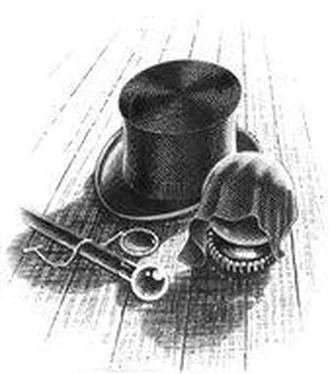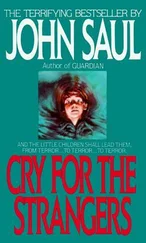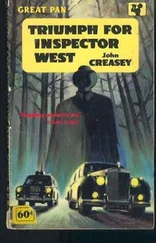John Creasey - Stars For The Toff
Здесь есть возможность читать онлайн «John Creasey - Stars For The Toff» весь текст электронной книги совершенно бесплатно (целиком полную версию без сокращений). В некоторых случаях можно слушать аудио, скачать через торрент в формате fb2 и присутствует краткое содержание. Жанр: Старинная литература, на русском языке. Описание произведения, (предисловие) а так же отзывы посетителей доступны на портале библиотеки ЛибКат.
- Название:Stars For The Toff
- Автор:
- Жанр:
- Год:неизвестен
- ISBN:нет данных
- Рейтинг книги:5 / 5. Голосов: 1
-
Избранное:Добавить в избранное
- Отзывы:
-
Ваша оценка:
- 100
- 1
- 2
- 3
- 4
- 5
Stars For The Toff: краткое содержание, описание и аннотация
Предлагаем к чтению аннотацию, описание, краткое содержание или предисловие (зависит от того, что написал сам автор книги «Stars For The Toff»). Если вы не нашли необходимую информацию о книге — напишите в комментариях, мы постараемся отыскать её.
Stars For The Toff — читать онлайн бесплатно полную книгу (весь текст) целиком
Ниже представлен текст книги, разбитый по страницам. Система сохранения места последней прочитанной страницы, позволяет с удобством читать онлайн бесплатно книгу «Stars For The Toff», без необходимости каждый раз заново искать на чём Вы остановились. Поставьте закладку, и сможете в любой момент перейти на страницу, на которой закончили чтение.
Интервал:
Закладка:
“Oh,” said Rollison, taken by surprise. “I’ll think about that. Do I hear the other telephone bell ringing?”
“Incessantly, sir,” said Jolly. “Incessantly.”
When Rollison put the telephone down it was with unexpected lightness of heart. And he seemed to hear a gentle voice saying: “. . . but you will get hel p from unexpected sources. ”
CHAPTER EIGHT
Home Of The Angry Woman
No one was near 12 Tillson Street, the street in which Charlie Wray had died. On the roadway and the pavement close to a cracked and broken lamp-post was a telltale patch of fresh sand and dampness from the water used to hose away the signs of death. It was a short street, shaped like a shallow crescent between two longer ones. The houses were all three storeys high, with steps leading down to gloomy-looking basements; there were bars at the basement and ground-floor windows of Number 12, and black paint on the bars and the rail about the house. In the middle of the basement area was a large bowl of dead and dying tulips; otherwise the place seemed well-kept. It was flanked on either side by FOR SALE boards outside houses much more dilapidated.
Rollison stepped to the front door, and glanced behind him. There was no one in sight—only a small black car parked fifty yards or so along the road.
On the side of the door were four bells, and beneath each bell-push a name. The third one from the bottom had: “ Mrs Abbott ” in faded ink on a dirty white card.
He pressed Mrs Abbott’s bell, and waited. There was no answer. He pressed again with the same result. He did not know why he was surprised, but he was; and uneasiness merged into his surprise. He inspected the lock; it was easy to force, and he did not lose a moment. The blade of a special knife, a few dexterous twists—and the latch clicked back. Rollison pushed the door open and stepped inside.
At once he detected a strong smell of burning.
Burning?
He saw stairs disappearing downwards into a well of darkness; more stairs leading up, the walls drab with faded paper. It was from these that the smell of burning seemed to be coming. He hurried upwards, passed a doorway marked 2, and reached the next landing. Beneath the 3 on the door now facing him was the name Mrs Abbott. This door had an old-fashioned type lock, no more difficult to force than that on the main entrance. The smell of fire was much stronger now, and Rollison worked quickly. Suddenly the lock clicked back, and he flung the door open.
Smoke filled a room almost straight ahead, along a narrow passage. It was red-tinged. Rollison coughed as he plunged inside; he could see flames through the swirling grey, but little else. In one corner of the room he could just make out a wash-basin and a large old-fashioned jug. Coughing and choking, he fumbled for a tap, filled the jug, and splashed water over the fire. It seemed an age before the flames went out. He refilled the bowl and splashed in greater volume, this time until there was only smoke and steam and blackened debris.
The window was closed and smoke still whirled and twisted, as if anxious to get out. Rollison pushed open the window and turned back.
Gradually the smoke cleared; and as it cleared, his smarting eyes made out the hazy shapes of furniture: a chair, a cupboard, then a bed. And lying across the bed, feet dangling to the floor, a woman’s body.
Rollison’s heart lurched; then he steeled himself to go forward. It was a shock, even though he had been half prepared for some such thing. The woman did not move. Rollison reached her, saw the slackness of her eyes and mouth and knew that she was dead. He leaned forward and looked down on the now flabby face of Mrs Abbott.
Two had died . . .
The smoke had almost gone, and glancing into a corner he saw a bureau, flap down, drawers wide open. He went over to it. Someone had rifled it, papers were strewn about and two drawers had been turned upside down on the floor. But there was nothing to show what the thief—if thief it had been—had been seeking.
Rollison turned back and studied the position of the dead woman.
If she had come in, crept in, and approached a thief from behind, and the thief had heard, he could have spun round, seized her, and easily have thrown her into the position in which she now lay. One shoe had fallen between the bureau and the white bedspread, the other dangled from her foot. Seeing these, Rollison felt sure that this was what had happened.
There were dark marks on Mrs Abbott’s throat, showing where thumbs and fingers had pressed—marks which told how deeply they must have embedded themselves in the thick flesh. No one could kill like this by accident. In fury, perhaps, but chiefly in cold-blooded determination. And the killer must have had powerful hands.
Turning away from the body, Rollison studied a photograph of an elderly man— almost certainly Mrs Abbott’s husband, he thought. Then he made a careful search through the rest of the flat. But he found nothing of interest. And there was no ammonia, nothing to suggest that it was Mrs Abbott who had made the missile she had thrown at him.
Such missiles couldn’t be bought; she must either have made it herself or had it made for her, and Rollison’s suspicions that someone had put her up to the attack strengthened. He lingered for a few moments, wondering whether he had overlooked anything, decided not to stay, and went to the front door. There was no telephone, but he could ring the Divisional police from the nearest booth.
He opened the door—and saw two heavily built men standing outside.
* * *
Rollison stood stock still in surprise.
The two men blocked his way to the stairs; obviously they intended to do this. He felt quite sure who they were, and almost at once, one of them said:
“Mr Rollison?”
“Yes. I was about to telephone Division,” Rollison said.
“Were you, sir?” Scepticism showed in the man’s voice. “You don’t live here, sir, do you?”
“No. You know very well that I don’t.”
“Just making sure, sir. Excuse me.” He pushed by, and as he did so two more men appeared at the foot of the stairs. There would have been no point in trying to get away, but even had he wished to make the attempt, these additional men made any chance of escape almost impossible. Rollison still hadn’t fully recovered from his surprise at their unexpected arrival on the scene; now he tried to regain control of the situation.
“Officer.”
The man who had pushed past him paused. “Yes?”
“A woman has been killed in this house.”
“Indeed, sir. Is that why you were about to call us?”
“Yes.”
“What are you doing here?” The second man spoke, the taller and more massive of the two; he reminded Rollison of Bill Ebbutt fifteen years or so ago.
“I came to talk to the woman—to Mrs Abbott.”
“I see, sir.”
The first man was walking down the passage. The acrid fumes of smoke were still strong, and Rollison saw him pause and rub his eyes. He turned.
“It looks as if someone decided to burn the place down.”
“ What ’ s that?” Another man appeared on the stairs, youthful-looking and very eager, obviously not a policeman. “Arson, do you mean?” His eyes gleamed with excitement. “I’m from the Chronicle. Is it arson?”
“Who knows?” asked the policeman nearest Rollison. “Don’t waste any time here, Tommy. Mrs Abbott’s dead, and there was a fire.”
The boy’s eyes seemed to grow enormous.
“Was she murdered ?” He looked at Rollison.
“Do you know? Are you—good Lord! It’s the Toff!”
“That’s what they call him,” the detective said drily.
Читать дальшеИнтервал:
Закладка:
Похожие книги на «Stars For The Toff»
Представляем Вашему вниманию похожие книги на «Stars For The Toff» списком для выбора. Мы отобрали схожую по названию и смыслу литературу в надежде предоставить читателям больше вариантов отыскать новые, интересные, ещё непрочитанные произведения.
Обсуждение, отзывы о книге «Stars For The Toff» и просто собственные мнения читателей. Оставьте ваши комментарии, напишите, что Вы думаете о произведении, его смысле или главных героях. Укажите что конкретно понравилось, а что нет, и почему Вы так считаете.












